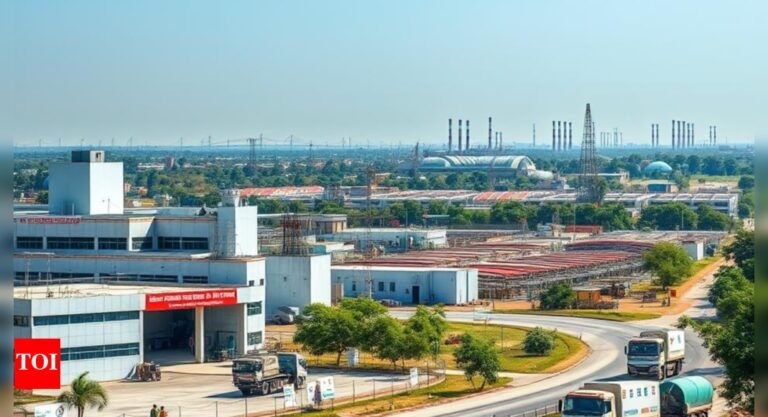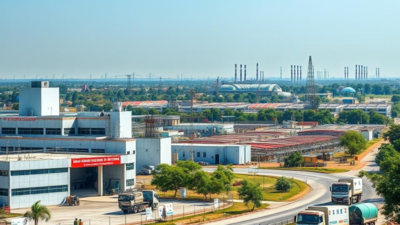Accelerating the rollout of plug-and-play industrial parks, improving logistics infrastructure, and targeted skilling are essential for boosting India’s manufacturing output and self-reliance, according to real estate consultancy Cushman & Wakefield.In its latest report, Elevating India’s Manufacturing Resilience: Charting the Path to Self-Reliance, based on responses from 94 senior decision-makers across India’s manufacturing and logistics sectors, the consultancy outlines how industry and policy alignment is unlocking capacity, especially for MSMEs.“India’s manufacturing sector is undergoing a structural shift. Our findings indicate a strong alignment between infrastructure investment, policy clarity, and industry intent,” said Gautam Saraf, Executive Managing Director, Mumbai & New Business at Cushman & Wakefield, PTI quoted.Saraf said 88% of manufacturers surveyed are scaling up due to improved infrastructure, and 95% cite better logistics access thanks to government-backed initiatives. However, sustaining this momentum will require “addressing deep-rooted cost and capacity gaps, especially in logistics, integrated facilities, and MSME productivity.”The report flags four core challenges: high logistics cost, warehousing capacity shortfall, low value addition, and skill gaps. It recommends a five-pronged strategy—accelerating plug-and-play industrial parks, redefining MSME thresholds to foster scale, fast-tracking multimodal logistics parks, boosting skill development, and digitising MSME export support.“Plug-and-play industrial parks, multimodal logistics networks, and improved land aggregation frameworks are not just enablers, they are essential levers for converting policy momentum into production-ready outcomes,” Saraf said.Abhishek Bhutani, Managing Director, Logistics & Industrial Services India and Head – Gujarat, Cushman & Wakefield said, “Pre-approved, infrastructure-ready zones are helping reduce time-to-market, lower upfront capex, and mitigate operational risks—especially for MSMEs looking to scale.”He added that success for companies expanding into new regions will depend on access to integrated ecosystems combining logistics, skilled labour, and multimodal connectivity, PTI reported.
Trending
- HDB Financial IPO listing: Stock set for market debut on July 2; check GMP and other details
- Total sown area this monsoon: Kharif sowing jumps 11.3% on strong monsoon; rice and pulses lead acreage surge
- Leadership shuffle: Tata Sons ropes in consumer veterans to Tata Digital board; balances earlier finance-centric line-up
- June GST collections 2025: Tax mop-up at Rs 1.85 lakh crore, up 6.2% on YoY
- Sensex zooms 12,000 points in just 3 months! Is the Rs 72 lakh crore stock market rally sustainable? Here’s what investors should focus on
- ‘Make in India’ success: Chinese smartphone brands bet on India for manufacturing & exports; Indian phonemakers compete for assembly
- ITR filing FY 2024-25: Why filing Income Tax Return is important even if you have no tax to pay – explained
- Indian Railways launches new ‘super app’ RailOne: Book IRCTC train tickets, track PNR, food, rail enquiry in one place – what it means for passengers
- Raymond Realty listing: Shares open below discovered price; brokerages still bullish on long-term prospects
- PM Modi’s visit to Namibia: Focus likely on diamonds, critical minerals; uranium talks also on agenda



